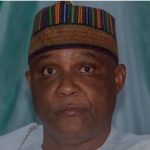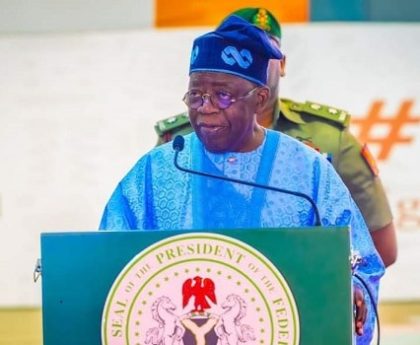By Kabiru Inuwa
Political discourse in Katsina State and beyond has been dominated by one subject: Governor Dikko Umaru Radda’s decision to proceed on a three-week medical leave amid prevailing security challenges. The debate has taken on a life of its own, with critics especially from opposition quarters claiming that the governor’s absence at such a time is irresponsible and insensitive.
But when emotions are set aside and facts are placed on the table, a different picture emerges one grounded in constitutional law, historical precedence, and the practical realities of leadership. Governor Radda has acted within the ambit of the Nigerian Constitution, demonstrated transparency in governance, and displayed foresight by ensuring continuity of leadership during his absence.
The Constitution Speaks Clearly
Section 190(1) of the 1999 Constitution of the Federal Republic of Nigeria (as amended) provides that:
“Whenever the Governor of a State is proceeding on vacation or is otherwise unable to discharge the functions of his office, he shall transmit a written declaration to the Speaker of the House of Assembly. Such functions shall be performed by the Deputy Governor as Acting Governor until the Governor transmits to the Speaker a written declaration to the contrary.”
Governor Radda complied strictly with this provision by transmitting a letter to the Katsina State House of Assembly, empowering his Deputy, Hon. Faruk Lawal Jobe, to act as governor. This is not just compliance with the law it is an exemplary display of democratic values. He has followed the same process that past governors and even presidents have observed, proving that this is not an anomaly but an institutionalized practice.
Historical Precedents: Radda Is Not the First, Nor Will He Be the Last
Nigeria’s political history is replete with similar cases:
President Muhammadu Buhari (2017): Buhari spent over three months in the United Kingdom on medical leave while Professor Yemi Osinbajo acted as president. Despite widespread concerns, the system worked, and Nigeria remained functional.
Governor Rotimi Akeredolu of Ondo State (2023): Akeredolu went on an extended medical leave in Germany. The House of Assembly empowered his deputy to act, and governance continued.
Late Governor Idris Wada of Kogi State (2013): After a road accident, Wada transmitted power to his deputy while receiving treatment abroad.
Even in the private sector, CEOs take medical leave, delegating duties to ensure corporate stability. Governance is no different; systems, not individuals, keep the engine running.
So why the uproar in Katsina? The answer lies not in legality but in political opportunism opponents seeking to weaponize a medical necessity.
Health and Leadership: A Constitutional Duty
Leadership is not just about presence; it is about capacity. A governor who ignores his health for optics is not being brave he is being reckless. As the Constitution guarantees life and dignity, it indirectly obligates leaders to maintain their health to discharge duties effectively. What good is a sick governor to a state facing multiple challenges?
The critics argue, “People are dying; how can he leave?” But let us flip the question: What if ill health incapacitates him permanently because he refused timely care? That would create a constitutional crisis far worse than a three-week leave.
Another argument is that Radda’s absence will worsen insecurity. This betrays a misunderstanding of how governance and security architecture work. Banditry and rural violence in Katsina are long-standing national issues that require joint efforts of the military, police, intelligence agencies, and community structures. These institutions do not grind to a halt because the governor is on medical leave.
Governor Radda did not abdicate responsibility; he delegated authority. Deputy Governor Faruk Lawal Jobe is now the Acting Governor, empowered to make decisions. The State Executive Council remains functional. Security meetings continue. The federal government’s presence through the Nigerian Army, Police, DSS, and Civil Defence is intact.
Even while away, modern communication tools enable Radda to stay informed and issue directives when necessary. Leadership today is not defined by geography but by strategy.
It is easy for the public to conflate medical leave with abandonment, but responsible governance is about process, not optics. Governor Radda did not sneak out of the state; he announced his leave publicly, cited health reasons, and constitutionally handed over power. This transparency is rare in Nigerian politics.
Contrast this with cases where leaders vanished without explanation, creating rumors and governance paralysis. Radda has avoided that pitfall by doing the right thing the right way.
If there is any valid criticism, it should not be about the leave but about why Nigerian leaders still need to seek treatment abroad. This is a systemic failure that predates Radda and requires national policy reforms, massive investment in local hospitals, and medical technology transfer. But until that is achieved, medical tourism remains a reality even for ordinary Nigerians who can afford it.
Our elders have a proverb: “He who fetches water for the people must first quench his thirst.” A governor cannot govern effectively if broken by illness. Another saying goes: “A weak shepherd cannot protect his flock.” Radda’s decision to prioritize his health is, therefore, not selfish but strategic.
Ironically, some of the loudest critics today belonged to parties whose leaders once spent months abroad for medical care. Where were their voices then? Governance is about principles, not selective outrage.
Moreover, the Constitution they swore to uphold recognizes human frailty and provides mechanisms for continuity. To attack a governor for following the law is to undermine the very foundation of our democracy.
Governor Dikko Radda’s medical leave is legal, necessary, and responsible. He has respected the Constitution, ensured leadership continuity, and demonstrated accountability by informing the public.
Rather than politicize illness, let us focus on what truly matters: supporting efforts to strengthen security, demanding better healthcare infrastructure, and fostering unity in a time of national challenge.
Inuwa a public analyst lives in Malumfashi.Katsina State




